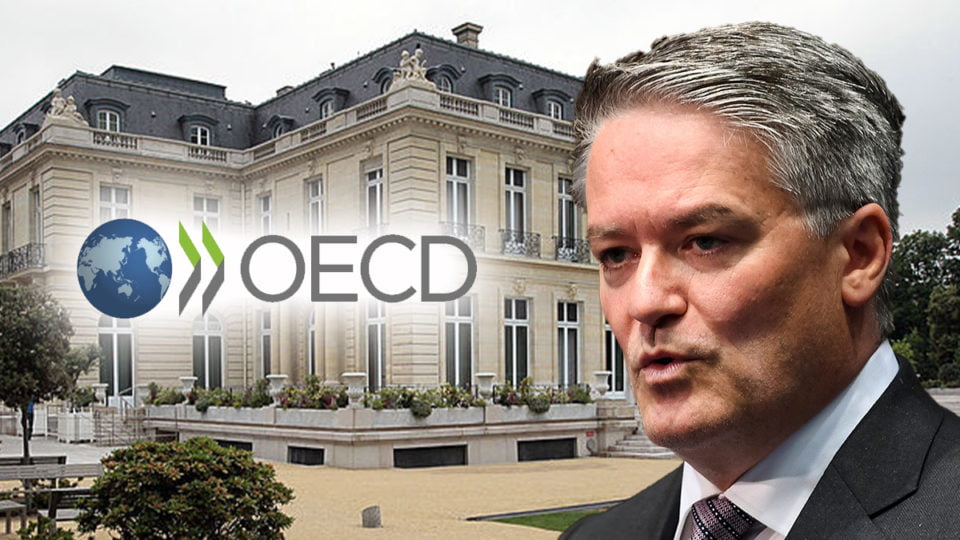It is certainly a coup that an Australian will head up the OECD. Mathias Cormann may be the best person for the job, who knows?
There was no selection process, transparent or otherwise. He was nonetheless backed by a tax-payer funded private jet tour of EU voting countries.
Compared with other contenders, his bio is frankly not that impressive – a mere 4 years in managerial roles in HBF Health Insurance is all that’s claimed by way of professional experience. The rest was coming up the ranks as a ministerial adviser. His main competitor, Cecilia Malmstrom, was way better qualified.
Our former finance minister will earn over $357,000 a year for the next five years, tax-free, plus numerous allowances, in this role. He has had his eyes on this job for quite a while and doubtless his privately expressed view that the PM was a narcissist meant he should go.

But this is part of a growing pattern of jobs for the (mostly) boys.
It’s as if parliament is just a stepping-stone to a more lucrative career on the world stage or in a plum diplomatic post – think Alexander Downer (UK), Amanda Vanstone (Italy), George Brandis (UK), Arthur Sinodinos (US).
Thankfully most of our overseas ambassadors are properly qualified senior career officers with the Department of Foreign Affairs and Trade.
And there’s another issue. Australia is spending an all-time low of 1.3% of the federal budget on its diplomatic corps. Canada’s is 1.9 %.
As Melissa Conley Tyler, Director of Diplomacy at Asialink, The University of Melbourne, points out, diplomacy spending has dropped while ASIO and the Australian Secret Intelligence Organisation have both grown by over 500%. She says the systematic underfunding of DFAT has run down Australia’s diplomatic capacity to the point that it is under-resourced to confront current foreign policy challenges.
This might explain our troubles with China.
The Government continues to apply the absurd 1% ‘efficiency dividend’ to this and other government departments.
The Lowy Institute says Australia has one of the smallest diplomatic networks in the developed world.
Australian aid spending is at an all-time low, having been cut from 2013-14, when it was budgeted at 0.37% of gross national income (or $5.7 billion) to 0.21% (or $4 billion) of gross national income. Today the international average is 0.31%. Foreign aid has also been reoriented towards the Pacific as part of Scott Morrison’s Pacific ‘step-up’, further reducing Australia’s aid commitment to the rest of the world.
To put that in perspective, Australia spends almost 10 times that much on Defence.
Photo: The Guardian

